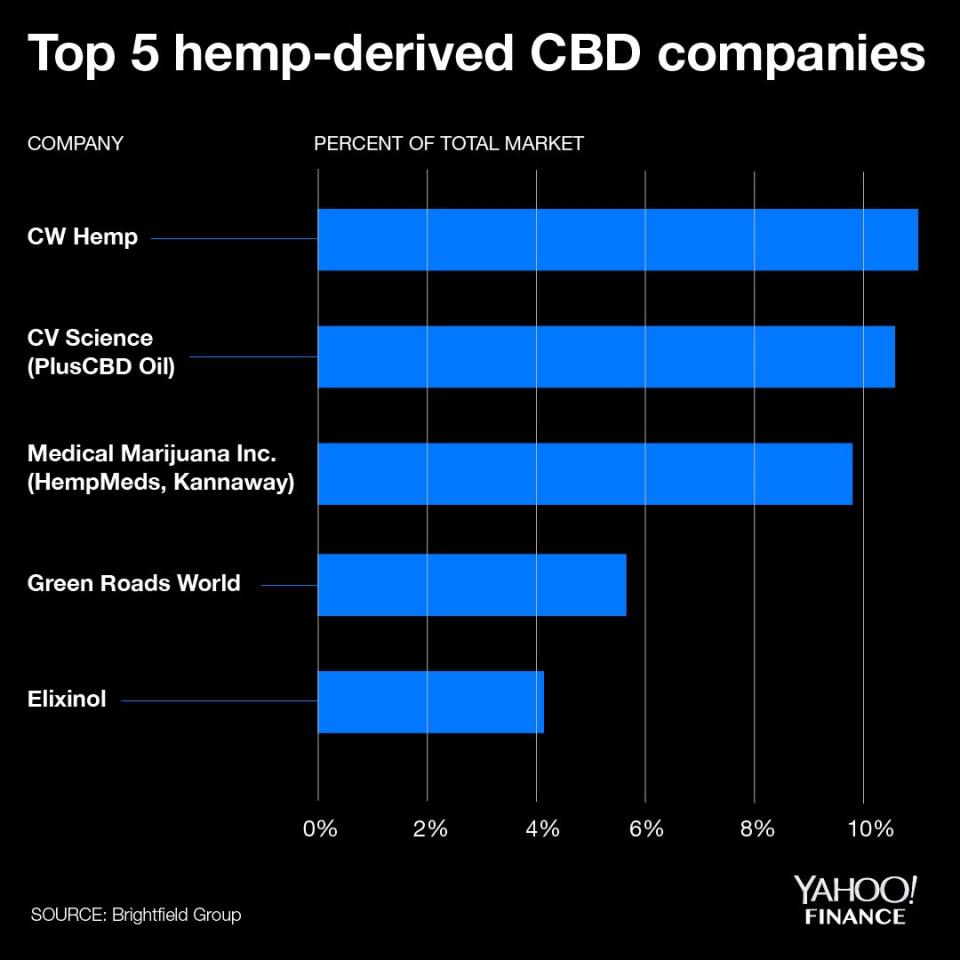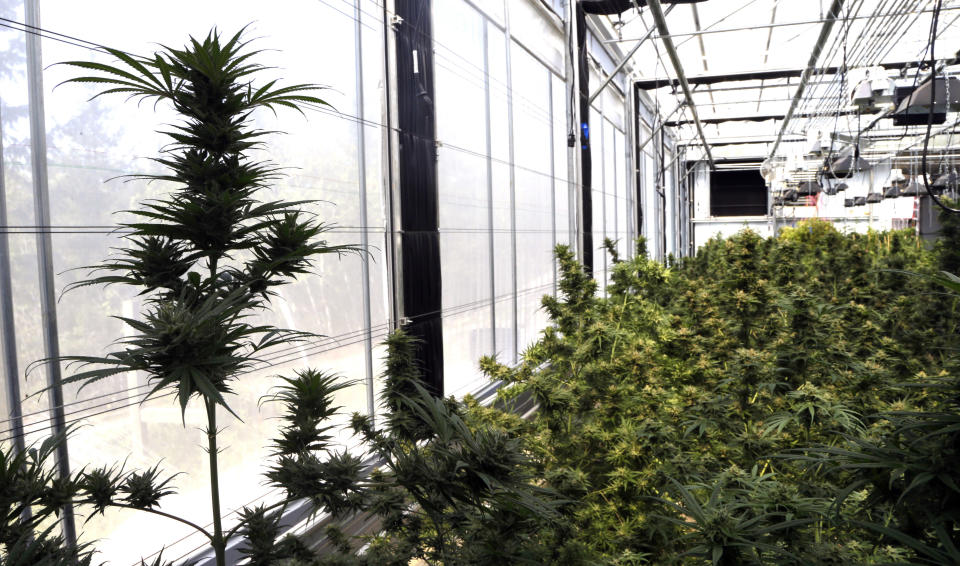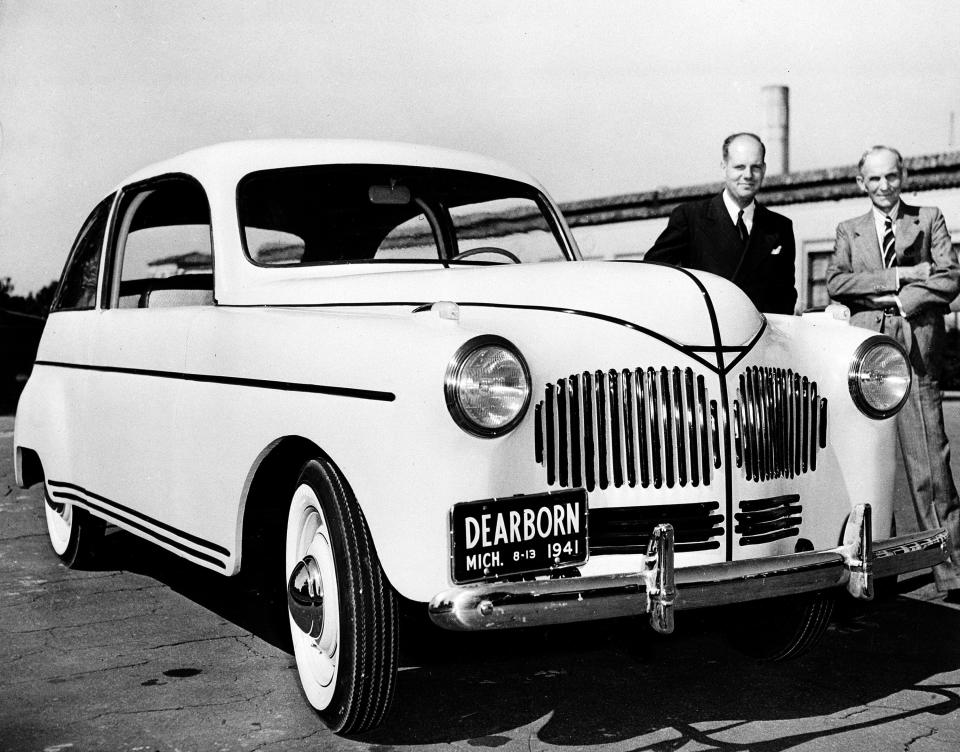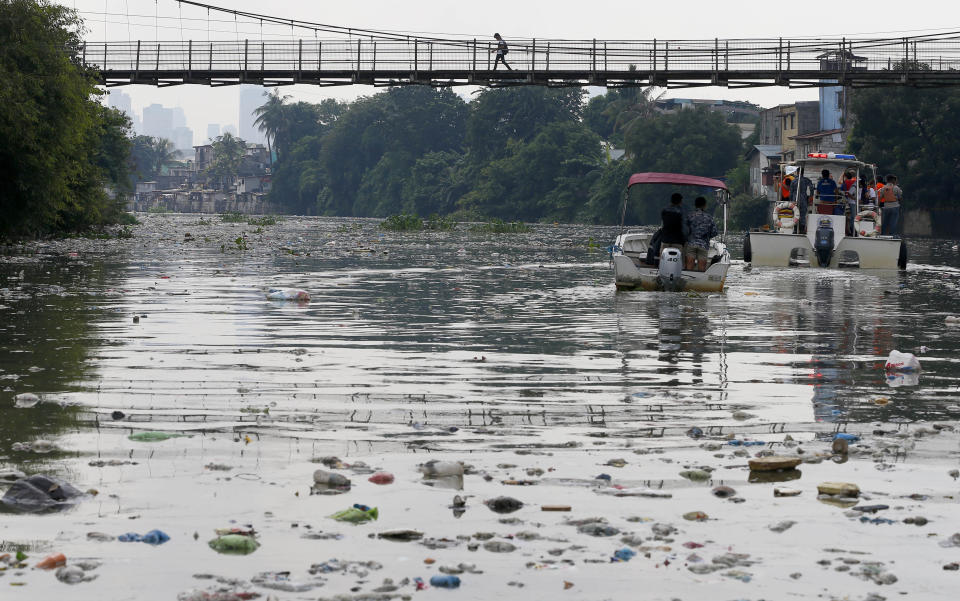One of the largest CBD company’s CEO is stealthily backing a hemp plastics startup
When President Donald Trump signed the farm bill into law Thursday, hemp production in the U.S. was made legal on a federal level for the first time in nearly a century.
The bill’s passage was also a boon for manufacturers of therapeutic products containing the hemp-derived extract called cannabidiol, or CBD, since it established CBD as a legal substance on a federal level.
But for companies like Elixinol Global, the country’s fifth largest CBD company by market share according to industry tracking firm Brightfield Group, the bill’s passage represents more than just long sought-after relief from operating in a legal gray area. It has opened the floodgates.

The farm bill has breathed fresh life into Elixinol CEO Paul Benhaim’s dream that once failed in the early 2000s: To create biodegradable bioplastics derived from hemp waste in order to eliminate traditional plastics derived from fossil fuels. Benhaim spent more than 20 years building hemp-focused startups — everything from a successful hemp nutritional snack bar in the UK to the CBD products his Australia-based company is now known for.
Benhaim told Yahoo Finance his last foray into hemp plastics failed because hemp production was so small. That’s now changed as hemp production has grown and is projected to increase substantially with the farm bill’s passage.
“To be truly cost effective with bioplastics, it’s all about being close to production,” he said. “So with the farm bill and people growing hemp in the U.S. there will be more biomass available and we can use the waste product for whatever they are growing hemp for.”
Hemp waste turned plastic
In the case of Elixinol and its competitors, hemp is being grown and harvested to extract CBD for creams, tinctures, supplements, and even beverages. The leftovers from that production in the form of hemp biomass had in some cases been exported as stock feed to Asia since it wasn’t allowed to be used for much under U.S. law. Now, Benhaim plans to use the waste to form the four new hemp plastic polymers his startup, the Hemp Plastic Company, plans to roll out in January.
“There’s no one doing this quite on the scale that we’re preparing for,” he said.

Ironically, this wasn’t Benhaim’s idea. Despite launching one of the most successful CBD companies on the market and fully understanding the use case for hemp waste, there were pieces he hadn’t solved for in the bioplastic production process that were needed to make hemp plastics cost comparable with petroleum alternatives. Even though he hadn’t solved for those improvements, he had still maintained ownership of the domain name, “HempPlastic.com,” from his failed plastics venture.
It was an inquiry back in 2017 to buy Benhaim’s domain that would bring Kevin Tubbs, an Alaska-based packaging company owner and hemp enthusiast, into the fold.
“He fit in a number of pieces that fixed the issues I had always seen — how to use existing equipment and how to make it cost effective,” Benhaim said. “He showed me a way, a path to making hemp plastics cheaper than petrol chemical plastics.”
With the partnership in place, Benhaim funded the seed round to get the venture off the ground and navigated a small financing round. At a trade show last year in Los Angeles, Tubbs explained how clients reacted to the unveiling of the startup’s hemp plastic prototypes.
“Initially I thought your small early adopters would be our market… but we didn’t realize what the response would be from the big guys,” he said. “We’re being embraced by large companies with multimillion unit orders.”
The duo admits that in the grand scheme of the 300 million tons of plastics produced globally, their 50 million pound capacity in 2019 will be a drop in the bucket. But the hope is to start small, prove that hemp plastics are a usable and affordable alternative and build out from there. As more plastic purchasers see their products, Tubbs hopes their environmentally conscious alternatives will become the go-to.

“Effectively we’ve reduced plastic pollution to a design decision,” he said. “There’s a cache of people trying things that are greener, our prices are competitive, it’s a convergence of a lot of things.”
As an example of how the company’s production process has dropped costs significantly, Tubbs pointed to a competitor’s biodegradable polymer selling for about $48 per pound. He estimates he can now produce the same product with hemp waste at a sale price of $3.07 per pound, or just a little over 6% the cost of his competitor. That cost reduction will bring hemp plastics more in line with traditional raw plastic polymers.
“It’s not that hemp plastic isn’t out there, it’s just about four or five times the cost of raw polymer, Tubbs said. “You can be the greenest guy on the street, but at four to five times the cost of polymer you might not go with it.”
But with oil prices at a 17-month low, prices of traditional plastic raw polymer are relatively cheaper than his bioplastics. As oil prices rebound, that price gap is expected to shrink, which has been Tubbs’ selling point to potential clients looking to avoid price swings in plastics.
“I just know that we’ll never face that volatility because of what we do with hemp,” he said.
Environmentally-friendly brand packaging
Luckily for the Hemp Plastic Company, there are plenty of growing CBD or marijuana companies willing to pay a little bit more for hemp plastics or biodegradable plastics that are on brand for their customers.
Denver-based joint rolling tray manufacturer and seller of the spinning cannabis organizer dubbed the “Blazy Susan” is just one of those customers willing to experiment. Founder Will Breakell explained to Yahoo Finance that the extra $1 to $2 he expects to eat per plastic tray as a result of opting for Hemp Plastic Company’s 20% hemp plastic blend would be worth it to appeal to his customer base.
“It’s a question of are your customers going to relate, and with the hemp plastic it’s going to be a better product, I think,” he said.
Other cannabis companies might agree, but it’s Tubbs’ and Benhaim’s hope that even broader packaging companies will come to realize the problems with non-biodegradable plastics. As a recent Ellen MacArthur Foundation study raised, plastic waste could outnumber fish in the ocean by 2050.

For Benhaim, it’s that problem that led to him to inject his own hemp-sourced riches into the side project that his company Elixinol could take a stake in down the road.
“I really don’t need any more business,” he said. “I’m already busy. This is something our world needs.”
Zack Guzman is a senior writer and on-air reporter covering entrepreneurship, startups, and breaking news at Yahoo Finance. Follow him on Twitter @zGuz.
Read more:
Why the Farm Bill could make 2019 the year of CBD
The Farm Bill could end the multimillion dollar industry of cockfighting

 Yahoo Finance
Yahoo Finance 